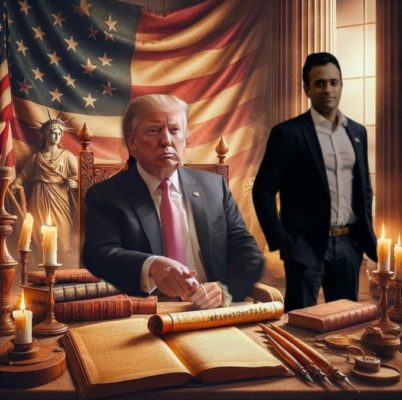By George Barron and Arthur Ingraham
In the history of Old World Europe, there was a common belief among the monarchs of the era that the common people could not rule themselves, that they were prone to chaos and disorder, and that only the wealthy and well-connected individuals who lived in the palaces could be trusted with rule. These enlightened elites were seen as the guardians of knowledge and wisdom, the only ones who could decide what was politically and morally correct for the people.
The belief that the governing class and the general populace lacked the capacity to govern effectively led to the establishment of a system in which the most important decisions were made by a small group of people. The concept of absolute authority was firmly established, with the aristocracy and monarchy controlling the complex network of social, political, and economic affairs.
Now, in the present, it seems as though a dark cloud from those days has returned. Modern culture is still filled with the sounds of a time when a small group of so-called enlightened people held all the power and influence. This revival is not just a clash of ideologies; rather, it is a determined conflict between the deeply ingrained principles of the Old World and the emerging ideals of the New World.
This is not just a battleground for political ideologies; this conflict represents a deep split in the core values that form the basis of our government. On the one hand, there is the deeply ingrained belief in the inherent superiority of a small group of people, similar to the elites of the past, who take on the role of protectors of society. On the other hand, there is the New World ethos, which supports democracy, equality, and the freedom of the individual to actively shape their own destiny.
This is not just a conflict between political parties or policies; this is a conflict between paradigms—a decisive struggle between the antiquated remnants of the past and the vibrant, inclusive spirit of the modern world—over whether society’s governance should stay in the ivory towers of a small number of people or be distributed throughout the diverse fabric of the people.
The revival of this historic conflict forces us to consider the lessons of the past and serves as a sobering reminder that the fight for self-determination and collective governance is an ongoing one. As the world grapples with the challenges of the present, decisions made will surely determine the course of society and whether it adopts the revolutionary ideals of the New World or more closely resembles the deeply ingrained ideologies of the Old World.
Inspired by this X post by Vivek Ramaswamy

